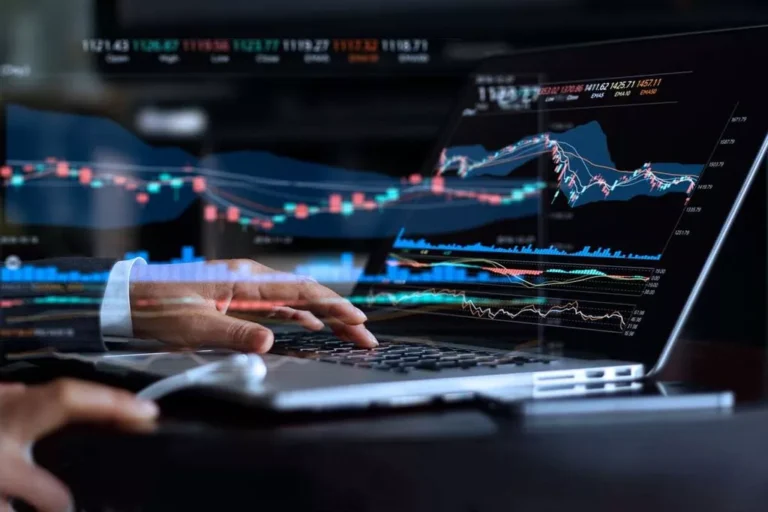Content
Open-end funds have the majority of assets within this group, and have experienced rapid growth over the last few decades as investing in the equity market became more popular. However, with the Financial instrument rapid growth of ETFs, many investors are now turning away from mutual funds. Investment companies are a large institutional investment class and provide professional services to banks and individuals looking to invest their funds. Some of the most common institutional trading methods include value investing, long-term strategy, fundamental and technical analysis, and mass-trading models. Being patient allows them to look at the broad picture and invest with growth potential in mind rather than immediate profits.
How do I know what institutional investors are doing?
These advantages may have eroded over the years as information has become more transparent and accessible, and regulation has limited disclosure by public companies. These can be contrasted with individuals who are most often classified as retail investors. Each day our team does live streaming where we focus on real-time group mentoring, coaching, and stock training. Our live streams are a great way to learn in a real-world environment, without the pressure and noise of trying to do it all yourself or listening to “Talking Heads” on social media or tv. We want the everyday person to get the kind institutional stock trading of training in the stock market we would have wanted when we started out. Only risk capital should be used for trading and only those with sufficient risk capital should consider trading.
Institutional investors and market impact
Because of their weaker purchasing power, retail investors often have to pay higher commissions and other fees on their trades, as well as marketing, commission, and additional https://www.xcritical.com/ related fees on investments. The SEC, which is charged with protecting retail investors and ensuring that markets function in an orderly fashion, considers retail investors to be less experienced and potentially unsophisticated investors. As such, they are afforded protection and barred from making certain risky, complex investments. Typically, retail investors buy and sell debt, equity, and other investments through a broker, bank, or mutual fund.
Why are institutional investors important?
Most often life insurance companies invest in portfolios of bonds and other lower-risk fixed-income securities. It’s important to treat day trading stocks, options, futures, and swing trading like you would with getting a professional degree, a new trade, or starting any new career. We put all of the tools available to traders to the test and give you first-hand experience in stock trading you won’t find elsewhere. Yes, we work hard every day to teach day trading, swing trading, options futures, scalping, and all that fun trading stuff. But we also like to teach you what’s beneath the Foundation of the stock market.
What Are Institutional Trading Platforms?
Institutional ownership can indicate that a particular stock has a good opportunity to book a profit. FlexTrade is a global leader in multi-asset execution and order management systems. The platform provides a wide range of trading strategies, execution algorithms, and analytics tools for institutional traders. It supports equities, options, futures, and foreign exchange, making it a versatile platform for institutional investors.
During the 2020 global pandemic, e-commerce exponentially grew, and our society continued with this trend even after the virus subsided. Institutional investors have recognized this sector’s potential and invested vast amounts of capital to profit from changing consumer preferences. This federal rule is intended to ensure that broker-dealers aren’t allowed to prioritize their own financial interests at the expense of the customer. • Institutional investors typically have access to professional research and industry resources. Most pension fund operational requirements are discussed in the Employee Retirement Income Security Act (ERISA) passed in 1974.
- In fact, Morgan Stanley stated in 2019 that institutional investors account for 90% of the U.S. stock trading volume.
- In other words, the market is much more efficient than a few decades ago, so picking out undervalued or overpriced stocks is much rarer and less reliable.
- While size and scale are two of the primary differences between institutional vs. retail investors, they each have their own advantages and disadvantages.
- As a matter of fact, institutional traders fight themselves to try to control the market and drive it towards their interests.
- Other institutional investors, like pension funds and endowments or foundations, frequently disclose some information.
- Be it the retail traders wanting to shift to institutional trading or wanting to get employed in the institutional trading firm, there are a lot of questions about the concept.
But we can’t rely on that fact alone since institutions make bad investments sometimes, just like everyone does. When multiple institutions own a stock, there’s always a risk that they are in a ‘crowded trade’. You can see Curtiss-Wright’s historic earnings and revenue below, but keep in mind there’s always more to the story.
They are run by expert portfolio managers and represent a common way for people to invest their disposable money without having to master investing. For instance, large financial institutions and mutual funds often use techniques such as options trading strategies to hedge their positions. They also buy fixed-income assets to generate a fixed annual return, regardless of their portfolio performance. Institutional trading is practised by a legal entity that accumulates funds from several different investors to invest in different financial instruments such as stocks, bonds, real estate etc. In short, institutional trading is done by huge organizations on behalf of their clients.

This process involves continuous assessment and realignment, ensuring each portfolio is equipped to weather market fluctuations and aligned with the investor’s risk tolerance and time horizon. Mastering the art of prediction in the face of market volatility is an essential skill for institutional traders. By closely analyzing economic indicators and geopolitical events, these traders can forecast market movements and adjust their strategies accordingly. Harnessing such anticipation techniques mitigates risks and potentially turns market turbulence into profitable opportunities. Charles River Development provides a comprehensive front-office platform for investment managers, asset managers, and institutional traders.
The convergence of expertise, advanced technology, and long-term investment perspectives distinguishes institutional investments as a force majeure in the theater of global finance. Derivatives trading platforms allow institutions to trade financial instruments that derive their value from an underlying asset, such as options, futures, and swaps. These platforms enable complex strategies involving leverage, hedging, and arbitrage. They offer advanced risk management and analytics tools, real-time pricing, and seamless connectivity to various derivatives exchanges. An institutional investor is an entity that makes investments on behalf of someone else. They gather insight and analytical data from Institutional Shareholder Services (ISS) providers that help them make informed shareholder decisions.
This difference is illustrated by the fact that institutional investing accounts for over 90% of stock trading volume. Due to better access to expertise and their financial leverage, they can enter exclusive markets (like ‘dark pools’) and trade private financial assets such as pre-IPO stocks. Savings institutions control more than $1.4 trillion in assets as of July 2022. These organizations take in deposits from customers and then make loans to others, such as mortgages, lines of credit, or business loans. Savings banks are highly regulated entities and must comply with rules that protect depositors as well comply with federal reserve rules about fractional reserve banking.
However, market forces impose some restrictions on institutional investors in this domain. In fact, big players do not invest in companies with small market capitalizations. As one of the pillars of successful investing, fundamental analysis is the baseline of every long-term investment strategy employed by financial institutions. Another popular form of institutional investing, pension funds manage working people’s savings and can be either government-run or private. Once pension funds’ clients retire, they become beneficiaries of the fund and draw a monthly pension from the pooled funds.
It is evident that institutional and retail traders feed into a cycle that is essential for the healthy functioning of the markets. They play interlinked yet distinct roles in the broader market dynamics, with each influencing investment strategies and contributing to the tapestry of trading volume that defines financial markets today. Professional institutional traders are also known for their exclusive access to sophisticated financial instruments and cutting-edge technology. While private investors might be restricted to more conventional investments, institutional traders deal in commodities such as forwards, swaps, and derivatives, harnessing their complexity for strategic gains.

They are someone with enough experience or wealth to make certain risky investments that are not available or permitted to the general public. In the United States, an accredited investor must have a net worth of over $1 million, excluding the value of their primary residence. Institutional investors account for about 80% of the S&P 500 total market capitalization, according to data from Pensions & Investment Online.

The complex nature and types of transactions typically discourage or prohibit individual traders. Retail traders, often referred to as individual traders, buy or sell securities for personal accounts. Institutional traders buy and sell securities for accounts they manage for a group or institution. Pension funds, mutual fund families, insurance companies, and exchange traded funds (ETFs) are common institutional traders. Yes, institutional investors impact volatility due to the size of their trades and their market presence. Their high-volume trades in less liquid stocks can amplify price swings, making these stocks more volatile even if there’s no new information about the company’s fundamentals.